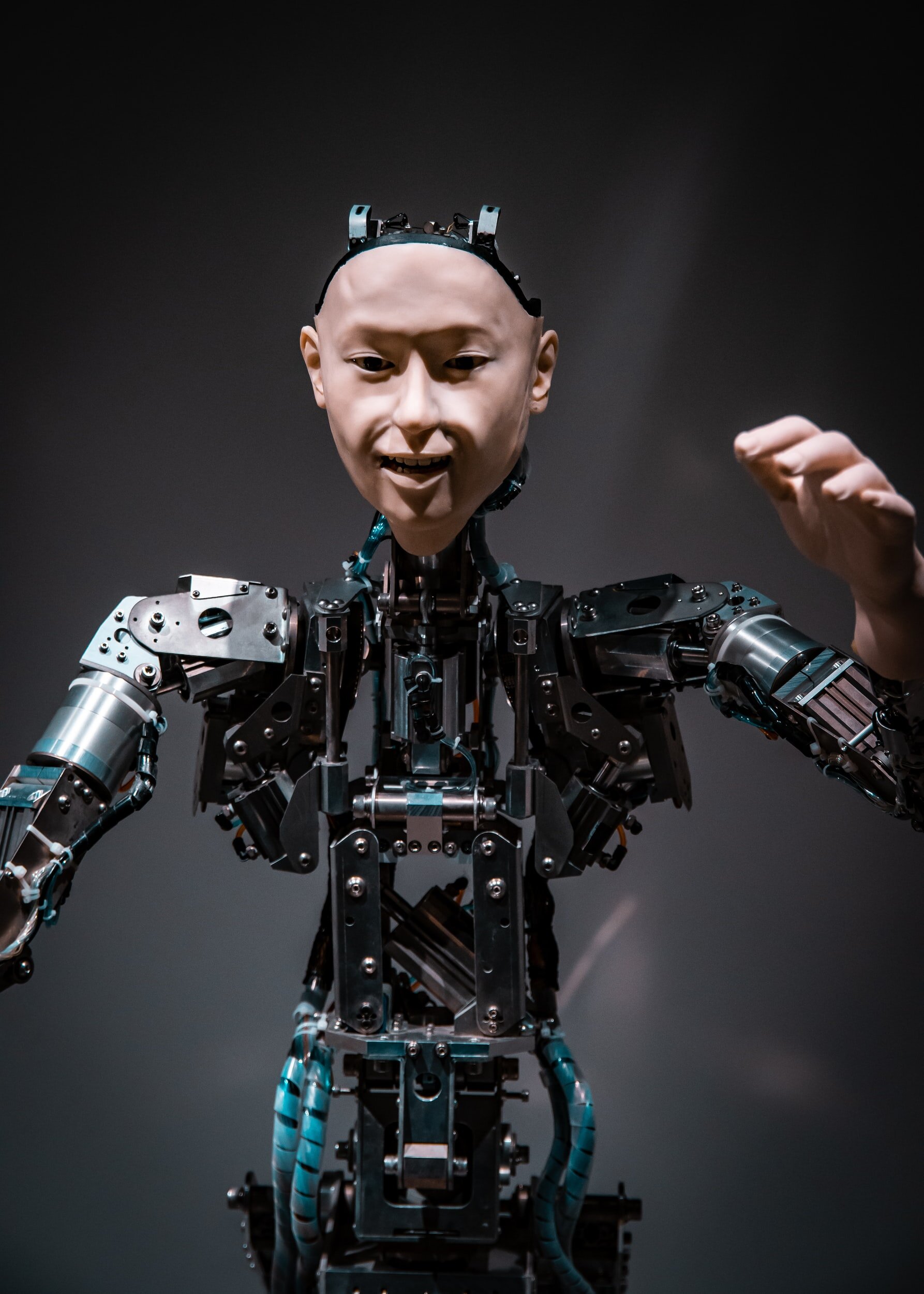Do Robots Scream at Night?
Here at Facts-Chology, we’re under the impression that generally no question is stupid and it’s the weird questions that actually help us learn things. It’s the outside-of-the-box thinking that leads to random questions that you might think can’t be answered but if you dissect the question you might learn things that you never expected.
That’s why today we’re going to try to dissect and answer the question: Do Robots Scream at Night?
First let’s be clear when I say robots I don’t necessarily mean humanoid robots like the Terminator, although we should probably prepare for when they do show up, have you all been seeing what Boston Dynamics is doing? It’s not going to end well, Black Mirror is a warning, not entertainment.
Its eyes are plotting your murder
When I say robots, I mean machines like your computer or gaming consoles or other objects that contain a computer processing unit or CPU if you’re nasty. Why am I considering these robots? Because these devices essentially contain the building blocks of what makes or will make robots.
Easy enough right? Next, what is a scream, you scream, I scream, we all scream for ice cream, sorry. But what exactly is a scream? Why do we yell out in excitement or fear, is it truly involuntary?
Turns out there's not a lot of research into screaming, it’s generally accepted we scream as an evolutionary trait to alert others in the area of a clear and present danger. As we’ve evolved so have our ways of communicating and screaming has become part of our joy response. If you’ve seen Taylor Swift, BTS, or even clips of the Beatles in concert then you know exactly the high-pitched screaming I’m talking about.
A recent study from the University of Zurich, and by recent I mean April of 2021, concluded there are six types of screams, Doctor, and author of the study, Sascha Fruholz classified the six screams into two sub-groups, alarm and non-alarm, trust me, it’s more scientific than I’m making it sound.
Anger, fear, and pain screams fall under alarm while joy, pleasure, and grief fall under non-alarm so if your friend is screaming in grief or sadness, turns out you can just ignore them.
He’s crying because he misses his mommy… ignore it
As for robots, they don’t feel these emotions and they certainly don’t feel pain. What kind of morally dubious species would we be if we decided to make a non-living entity feel pain? Except we already did this.
In 2018 a group of researchers from Osaka college in Japan built a robot that can display pain when damaged. They did this in order to teach empathy to artificial intelligence, which honestly feels like there’s probably just a way to code that. Oh and also the robot they’re using was built to look like a child and yes it looks creepy.
Now there are some real-world applications for this type of pain sensor that the researchers are honing in on, picture in the future you have two robots working on some factory line. An accident occurs and both robots get injured but not enough to stop them from doing their tasks.
The one with the ability to “feel pain” can detect where the damage is and determine if it will need to repair itself. The one that doesn’t have those sensors will just keep working, that injury might cause other issues in other parts of the robot until it’s fully broken causing more maintenance and disruptions.
But even if we can make robots feel pain, they don’t necessarily need to scream right? I’m pretty sure no machine is going to be programmed to scream...you know besides the ones we’ve already programmed to annoy us with screaming.
If you’ve ever debated whether throwing your phone against the wall when your alarms go off in the morning would be worth it, then you know exactly what I’m talking about.
Alarms are a type of scream, they alert us of dangers. Smoke alarms, carbon monoxide alarms, and security alarms, all scream at us to move our butts while more sophisticated versions trigger other steps such as alerting the proper authorities. We might in the future program those same robots to scream alerting us that they’ve been damaged.
But we’ve programmed those screams, it wouldn’t be fair for me to say these devices scream on their own when we’re the ones coding their AI to do it. Without us telling them to alert us they wouldn’t make noise in the first place… right?
Well not really, see inside your devices there are all these components that, when in use, create vibrations within the device and in turn emit a sound.
For all you PC gamers you might be familiar with electromagnetically induced acoustic noise, aka, coil whine.
For those of you who have gaming consoles, you’ve probably noticed they make noise sometimes when you’re playing them.
And for those of you who don’t have either you may have noticed a sort of hum or high-pitched sound when a TV turns on or a fluorescent lightbulb turns on.
In the simplest terms, all of these sounds occur when electricity runs through the components of your devices, none of these sounds are dangerous to you or your devices so you really don’t need to worry, they can be annoying though.
So we’ve established that machines do make noise, whether you consider it a scream is up to debate on how sensitive your ears are but do our devices emit these sounds at night and if they do, why?
The most common thing that happens at night is sleep, so a good question to tackle is do robots need sleep? For us, sleeping is a time to recharge, clean out our brains, repair our bodies, and be ready for the next day. It turns out robots, devices, and machines also need the same kind of time.
You may have noticed if you use a device for too long it may overheat, this happens because of the law of conservation of energy, which essentially says you can’t create or destroy energy, it only converts to another form.
When electricity flows through the wires and circuits it meets resistance, and this resistance turns some of that electricity into heat energy. When that heat builds up with no way of dissipating, it can damage the device.
Some devices have a safeguard where they will turn off on their own to prevent damage from overheating, other devices have fans or liquid cooling to help remove that heat. Robots would have to have the same built-in features to help prevent any overheating, sort of like us when we sweat or drink a cold beverage on a hot day.
“Oh my god, I’m a robot.”
But you’re not a robot, the law of conservation of energy affects us too. For us, we replace energy by eating but electronic devices have a built-in battery pack that needs to be recharged once they run out of juice. If you’ve had a phone for more than 6 months you know you have to do this every night because they just don’t make batteries like they used to.
Well in reality the devices using these batteries have just gotten more sophisticated and use more energy. It’s an ongoing problem with various engineers around the world trying to find new ways to make batteries last longer and require less changing out.
So while batteries and devices plugged into a wall may last longer than us before needing a recharge, you could argue they do have a sort of night phase where they need to sleep to recharge and cool down.
Now that we’ve established robots can, sort of, scream due to their internal components making sounds caused by electricity running through them especially if they have internal fans to cool them down, and we’ve established they do need some form of “sleep”, the question remains, do robots scream at night?
Well for those of you who have an Alexa or Google Home or whatever other device that responds to your voice, when you’re not using it, is it still listening?
Yes, it is, meaning it’s currently on just at a lower power setting waiting for you to give it an order. It’s in sleep mode during its night phase, and since there is some electricity running through it, it’s definitely making noise even though some of you might not be able to hear it.
Go ahead and raise the volume of that device then let it go back to standby mode, if you’re close enough, you might be able to hear that humming or static-like sound.
So does this mean robots scream at night? No, in actuality, they’re always screaming.
ALWAYS















